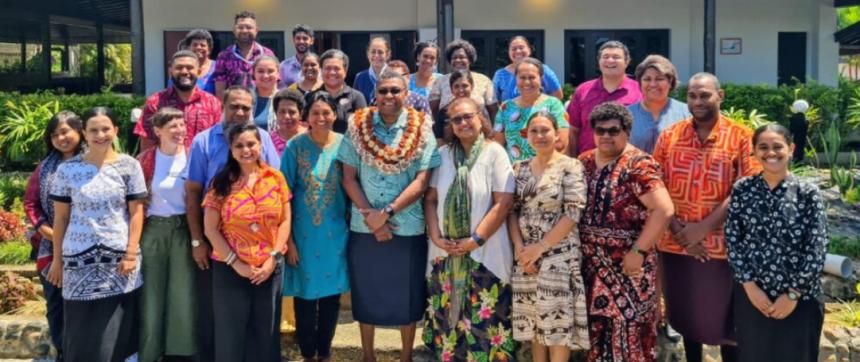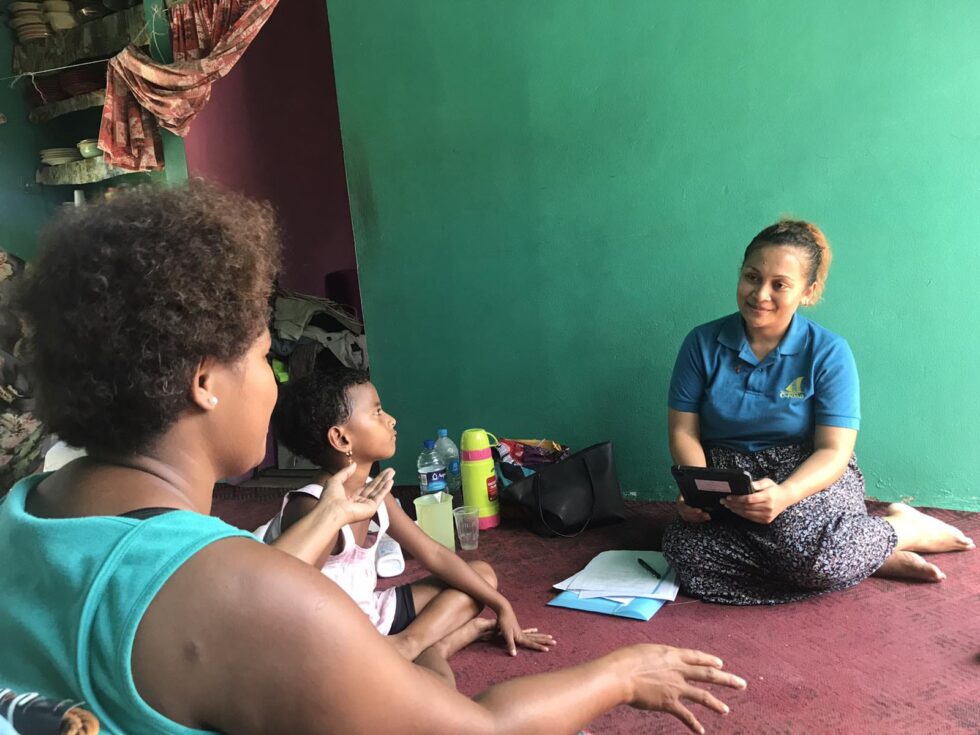 | News
| News
Groundbreaking research is helping drive more equitable vaccine access for children with disability across the Pacific
A two-part study published in BMJ Global Health and PLOS Global Health, the first of its kind in the region, has revealed significantly lower vaccination rates among children with disability in Fiji – despite the availability of free vaccines through the country’s national immunisation program – and offers insights into the barriers to vaccination for children with disability and their carers.
The research team – led by Associate Professor Meru Sheel, infectious diseases epidemiologist at the University of Sydney – initially surveyed 198 children aged 2–19 years with a disability and their carers to evaluate vaccine uptake. Only 55% of the children surveyed were fully vaccinated for their age – far below the national averages of 95.4% (ages 12–23 months) and 89.9% (ages 24–35 months).
While vaccine coverage was relatively high for birth-dose vaccines, such as the Bacille Calmette-Guérin (BCG) vaccine that protects against tuberculosis, it declined significantly over time. Children aged 15–19 years, those with hearing impairments and those whose caregivers lacked confidence in vaccine safety were among the least likely to be fully vaccinated. Children with mobility impairments had comparatively higher coverage.

Unise Vakaloloma providing information to study participants before the survey.
Identifying barriers to access
To further explore the behavioural and social drivers of vaccine uptake among children with disability and their carers from community health perspectives, the researchers conducted focus group interviews with 22 stakeholder, including health workers, disability service providers and advocates.
Key barriers to vaccination access for children with a disability and their carers included:
- stigma and discrimination discouraging healthcare access
- a lack of accessible, tailored vaccine information available to parents and carers
- limited collaboration between disability services and health providers
- long wait times and inaccessible clinic facilities
- additional transport costs for families, despite free vaccines
- hesitancy among health providers to vaccinate due to lack of training or experience
- religious and cultural factors influencing caregiver decisions.
Collaboration as a strength
A surprising and encouraging observation of the study was the active collaboration between immunisation services and disability providers in Fiji – a promising model for integrated primary healthcare that ensures children with disability are not left behind.
The study also relied heavily on trusted in-country partnerships, including with the Frank Hilton Organisation, which helped the research team connect directly with families of children with disabilities.
‘This was an incredibly collaborative study,’ said Associate Professor Sheel. ‘We worked closely with local health teams and community organisations, and their strong relationships with caregivers were essential to the success of the project.’
Driving policy and practice
The study, which was funded by ARIA-RISE, is already shaping change, with the Fijian government now considering updates to its immunisation policy to explicitly include a section focusing on children with disability – a crucial step toward equity in vaccine access.
In addition to influencing policy, the study has strengthened research capacity in the region. Team members gained hands-on experience in survey and focus group design, data collection and analysis and scientific writing – building a stronger foundation for future research and action.
Looking ahead
One key question remains: Are children with disability experiencing higher rates of vaccine-preventable disease and mortality in Fiji? Further research is needed, but this study lays essential groundwork to ensure that disability is no longer a barrier to life-saving immunisation.
Building on the findings from this study, the broader project – now funded by RISE 2 – is currently in its second phase. This phase aims to improve vaccine uptake among children with disability in Fiji. It focuses on co-designing tailored interventions to increase vaccination coverage and implementing key vaccination strategies for under- and unvaccinated children within existing health, education and disability systems.
As global vaccine coverage continues to improve, the findings from this study remind us of the importance of inclusive, accessible and community-led approaches to immunisation, especially in low- and middle-income countries.
Project partners
Regional partners for this RISE study include Fiji National University, Frank Hilton Organisation, Fiji Ministry of Health and Medical Services, Colonial War Memorial Hospital in consultation with the Fiji Disabled People’s Federation. Key Australian partners include the University of Sydney, Central Queensland Hospital and Health Service, Western Sydney University and Murdoch Children’s Research Institute.
Funding bodies
The Australian Government Department of Foreign Affairs and Trade through the ARIA Regional Immunisation Support and Engagement Grant.
Read the publications
Survey results: Jahan I, Vakaloloma U, Perera S, et al. Vaccination and its social and behavioural drivers in children with disability in Fiji. BMJ Global Health 2025;10:e017510.
Focus group interviews results: Power R, Vakaloloma U, Jahan I, et al; Australian Immunisation and Disability Investigators. "Fear of the unknown": Health, disability, and stakeholder perspectives on the behavioral and social drivers of vaccination in children with disability in Fiji. PLOS Glob Public Health 2025 Jan 8;5(1):e0004132.
Behind the Paper feature in PLOS Global Public Health
